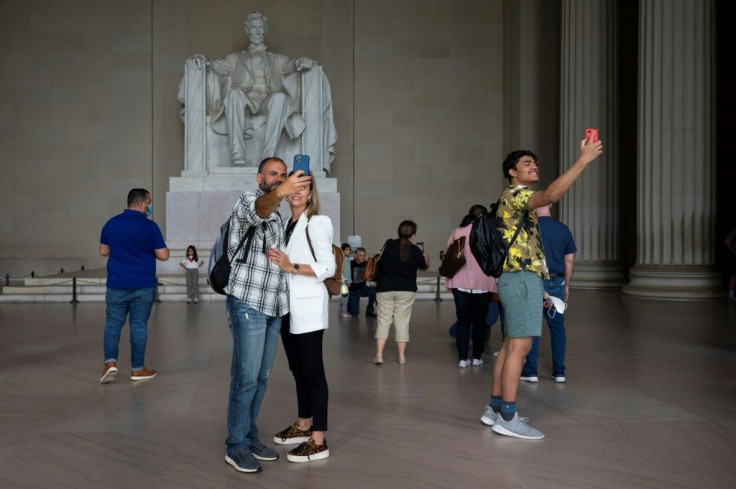Pandemic Made People More Paranoid: Study
KEY POINTS
- People got paranoid when others weren't following rules
- Paranoia seemed to have a certain effect on people's behaviors
- Those more paranoid were more likely to endorse conspiracies
A team of researchers found another way the pandemic has affected people. It turns out, it also increased people's paranoia, particularly in states with low adherence to mask mandates.
The pandemic affected many people's mental health. For instance, a poll in April found that more young Americans faced feelings of depression and hopelessness during the pandemic.
In a new study, published Tuesday in the journal Nature Behavior, a team of researchers found yet another toll the pandemic took on people's mental health -- paranoia.
The researchers had already been studying how uncertainty could affect the development of paranoia even before the pandemic began, Yale University said in a news release. They did this by conducting an experiment where the participants played a card game where the rules can suddenly change, thereby "provoking a rise in paranoia."
"Participants were forewarned that the best option may change but not when or how often," the researchers wrote. "Hence, the task assayed belief formation and updating under uncertainty."
The researchers continued to gather data amid the pandemic and examined the participants' self-rated paranoia as well as belief updating before and during the lockdowns and into the reopenings. They also looked at the impact of public health policy in states where mask-wearing was mandated and the others where they were just recommended.
"In their analysis, they also evaluated prior research on regional differences in how strongly people feel about following rules," Yale University noted.
"It was one of those rare, serendipitous incidences where we were able to study what happens when the world changes rapidly and unpredictably," study senior author Phil Corlett said in the university news release.
The researchers found that the pandemic's "initial phase" in 2020 increased people's paranoia and "choice volatility." Although more proactive lockdowns "made people's belief updating less capricious," they also found that the paranoia and "erratic choice behavior" were higher in the states where masks were mandated.
"This was most evident in states where adherence to mask-wearing rules was poor but where rule-following is typically more common," the researchers wrote.
"Essentially people got paranoid when there was a rule and people were not following it," Corlett explained.
According to the researchers, perceiving others to be refusing to follow the rules and "failing to profer reciprocal protection" appeared to have contributed to the increase in paranoia. Further, they noted the possibility that the places that "adhere rigidly" to the rules were less capable of adapting to unpredictable change.
The paranoia also seemed to have a certain effect on people's behaviors, as the researchers found that those who were more paranoid were also more likely to endorse conspiracies on mask-wearing, the "potential vaccines" and QAnon conspiracy theories.
Corlett noted historical precedents in the increase in conspiracy theories in times of trauma, Yale University noted. For instance, there was a prevalent belief that the medieval bubonic plague was caused by Jews poisoning well water.
"In times of trauma and great change, sadly, we have a tendency to blame another group," Corbet said as per Yale University.
"Paranoia is, by definition, a social concern," the researchers wrote. "These findings may help guide responses to future crises."

© Copyright IBTimes 2024. All rights reserved.






















